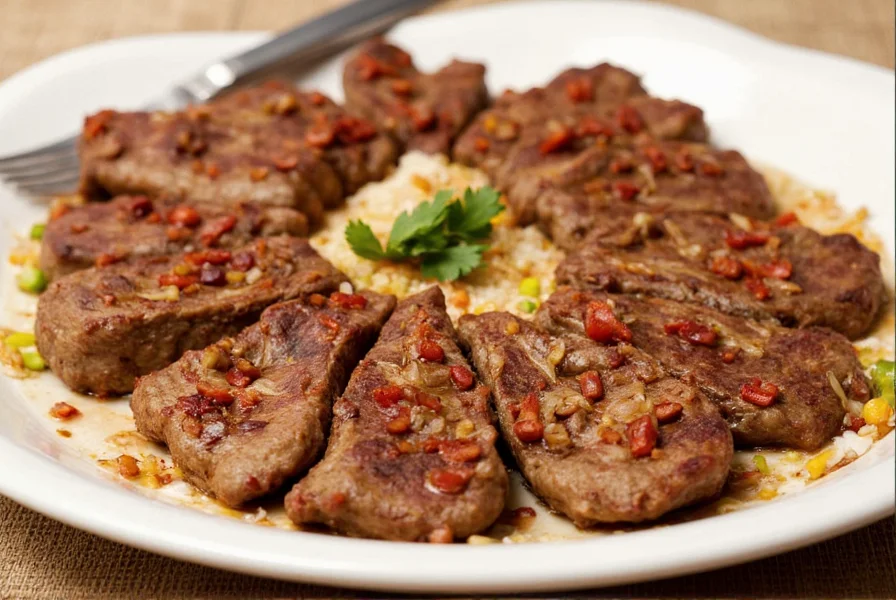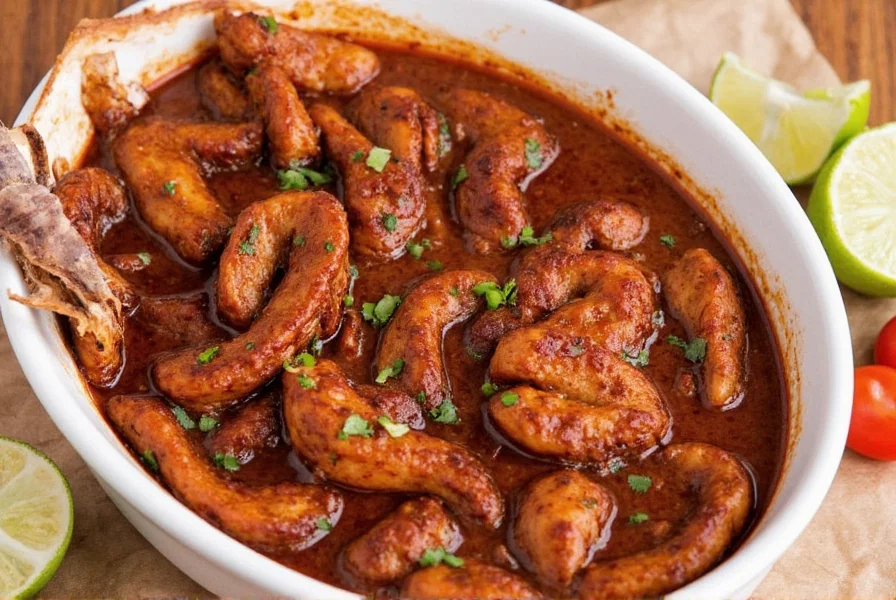Table of Contents
- The Best Fajita Marinade Recipe
- Key Ingredients for the Best Fajita Marinade
- Marinade Comparison: Store-Bought vs. Homemade
- How to Make the Best Fajita Marinade at Home
- Pro Tips for Using Your Fajita Marinade
- Frequently Asked Questions About Fajita Marinades
- Buying Guide: Best Fajita Marinades on the Market
- Conclusion
Discover the best fajita marinade recipe that guarantees juicy, flavorful meat every time. With just 8 simple ingredients and minimal prep, this homemade marinade outperforms store-bought options and delivers restaurant-quality results through precise acid-to-oil ratios, layered seasoning techniques, and optimal marinating times.
Key Ingredients for the Best Fajita Marinade
To create the best fajita marinade, you'll need a few essential ingredients. Here's a breakdown of the most common ones:
- Lime Juice: Adds acidity and brightness. The ideal acid-to-oil ratio is 1:3 to prevent meat toughness while maximizing flavor penetration.
- Olive Oil: Helps carry fat-soluble flavors and keeps the meat moist during cooking. Use high-quality extra virgin olive oil for best results.
- Cumin: A staple spice in Mexican cuisine, giving a warm, earthy note. Toast cumin seeds before grinding to release essential oils for deeper flavor.
- Paprika: Adds color and a slightly sweet, smoky flavor. Use smoked paprika for authentic fajita taste.
- Garlic and Onion Powder: Enhance depth and savoriness. Fresh garlic can be used but powder ensures even distribution without burning.
- Salt and Pepper: Essential for seasoning. Use kosher salt for better dissolution and flavor control.
- Chili Powder or Cayenne Pepper: For heat and complexity. Adjust based on protein type—chicken tolerates more heat than shrimp.
Some recipes also include additional elements like soy sauce, Worcestershire sauce, or beer to add more layers of flavor. Experimenting with these can help you find your perfect fajita marinade.

Marinade Comparison: Store-Bought vs. Homemade
| Feature | Store-Bought Marinade | Homemade Marinade |
|---|---|---|
| Convenience | Quick and easy to use | Requires time and effort |
| Flavor Customization | Limited to what's available | Complete control over ingredients |
| Cost | Usually more expensive per serving | Can be more cost-effective |
| Healthier Options | Might contain preservatives or additives | Can be made with natural, organic ingredients |
When choosing between store-bought and homemade, consider your cooking goals. Homemade marinades consistently deliver superior flavor and texture because you control ingredient quality and ratios. Store-bought options are convenient but often lack the nuanced balance needed for perfect fajitas.

How to Make the Best Fajita Marinade at Home
Creating your own fajita marinade is simple, fun, and rewarding. Here's a basic recipe to get you started:
- Ingredients:
- 1/4 cup olive oil
- 1/4 cup lime juice
- 1 tablespoon cumin
- 1 teaspoon paprika
- 1 teaspoon garlic powder
- 1 teaspoon onion powder
- 1 teaspoon salt
- 1/2 teaspoon black pepper
- 1/2 teaspoon chili powder (optional)
- Instructions:
- In a bowl, whisk together the olive oil and lime juice.
- Add the remaining ingredients and mix well.
- Place the meat in a ziplock bag or container and pour the marinade over it.
- Refrigerate for at least 30 minutes, or up to 24 hours for deeper flavor.
For maximum flavor, toast spices in a dry pan for 30-60 seconds before adding to the marinade. This releases essential oils and intensifies aroma. Always use freshly squeezed lime juice—bottled juice lacks brightness and can introduce off-flavors.
Pro Tips for Using Your Fajita Marinade
Even the best fajita marinade won't work unless you use it properly. Here are a few tips to maximize its effectiveness:
- Marinate for the Right Amount of Time: Aim for at least 30 minutes, but no more than 24 hours. Too long can make the meat tough due to acid breakdown. Chicken benefits from 2-12 hours, steak from 30 minutes to 4 hours, and shrimp only 15-30 minutes.
- Use a Non-Reactive Container: Glass or stainless steel containers are best—avoid aluminum as it can react with acidic ingredients and alter flavor.
- Don't Overdo the Acid: While lime juice is great for flavor, too much can dry out the meat. Balance it with oil and other seasonings to maintain moisture.
- Save Some Marinade for Basting: After marinating, reserve a small portion to brush on the meat while cooking for extra flavor. Never use marinade that touched raw meat without boiling it first for safety.
- Pat Meat Dry Before Cooking: Moisture is the enemy of searing. Pat meat completely dry with paper towels before cooking to achieve that perfect caramelized crust through the Maillard reaction.
These tips will help you get the most out of your fajita marinade, whether you're grilling, sautéing, or using a cast-iron skillet.
Frequently Asked Questions About Fajita Marinades
What are the three most important elements for a perfect fajita marinade?
The three most important elements for a perfect fajita marinade are: 1) The right acid-to-oil ratio (typically 1:3), which provides flavor while keeping meat tender; 2) Proper marinating time (30 minutes to 12 hours depending on the protein); and 3) Layered seasoning technique, where some spices are added to the marinade while others are sprinkled on just before cooking for maximum flavor impact. These elements work together to create bold, balanced flavors without compromising texture. Scientifically, the acid breaks down proteins for tenderness while oil carries fat-soluble flavors, and timing prevents over-tenderization.
How long should I marinate different types of meat for fajitas?
Different proteins require different marinating times for optimal results: Chicken benefits from 2-12 hours, as it has a more delicate structure; Steak (like skirt or flank) needs 30 minutes to 4 hours, as longer times can make it mushy due to the acid; Shrimp only requires 15-30 minutes, as its delicate texture can become mealy if marinated too long. The key is balancing flavor penetration with maintaining proper texture. For example, flank steak marinated for 6 hours will be tender and flavorful, but 24 hours will cause it to become mushy due to acid denaturation.
Can I use my fajita marinade as a sauce after it's touched raw meat?
No, you should never use marinade that has touched raw meat as a sauce without boiling it first. To safely use some marinade as a finishing sauce, reserve a portion before adding the raw meat, or boil the used marinade vigorously for at least 2 minutes to kill any bacteria. A professional technique is to make double the marinade quantity—use half for marinating and the other half, kept refrigerated separately, for basting and serving. This prevents cross-contamination while maximizing flavor.
What's the secret to getting restaurant-quality sear on fajita meat?
The secret to restaurant-quality sear is threefold: First, pat the meat completely dry before cooking—moisture is the enemy of searing. Second, use extremely high heat (450°F/230°C or higher) in a cast iron skillet or on a well-preheated grill. Third, don't overcrowd the pan—cook in batches if necessary. The combination of dry meat, intense heat, and proper spacing allows for that perfect caramelized crust that locks in juices while creating complex flavor compounds through the Maillard reaction. For best results, preheat your pan for 5 minutes before adding meat.
How can I make my fajita marinade more flavorful without adding more ingredients?
You can enhance your marinade's flavor through technique rather than additional ingredients: Toast your spices (cumin, paprika) in a dry pan for 30-60 seconds before adding to the marinade to release essential oils; use freshly squeezed citrus juice instead of bottled; let the complete marinade sit for 30 minutes before using to allow flavors to meld; and massage the marinade into the meat rather than just pouring it over. These techniques maximize the potential of your existing ingredients for bolder, more complex flavors. For example, toasting cumin seeds transforms their flavor from flat to deeply aromatic.
Can I make a great fajita marinade without using oil?
While oil plays an important role in carrying fat-soluble flavors and preventing sticking, you can create an effective oil-free marinade by increasing the citrus content slightly and adding a small amount of Greek yogurt or buttermilk, which contains enzymes that help tenderize meat. For best results with oil-free marinades, cook the meat using methods that prevent sticking (like a well-seasoned cast iron skillet) and baste occasionally with a little broth or water to prevent drying out during cooking. However, oil-free versions will lack the richness and moisture retention of traditional marinades, so they're best for lean proteins like chicken breast when cooking at high heat.
Buying Guide: Best Fajita Marinades on the Market
If you're not in the mood to make your own, here are some top-rated store-bought fajita marinades that deliver great flavor and convenience:
1. McCormick Mexican Style Marinade
Features: Spicy, zesty, and packed with traditional Mexican spices like cumin, garlic, and chili.
Advantages: Easy to use, versatile for different meats, and widely available.
Use Cases: Ideal for grilling, baking, or pan-searing.
Target Audience: Busy home cooks who want convenience without sacrificing flavor.
Suitable Occasions: Weeknight dinners, family gatherings, or potlucks.
2. Mrs. Dash Original Blend
Features: A salt-free blend of spices with a bold, spicy kick.
Advantages: Low sodium, customizable, and works well with various proteins.
Use Cases: Great for those watching their sodium intake or wanting to add their own seasonings.
Target Audience: Health-conscious individuals or those who prefer to customize their flavors.
Suitable Occasions: Casual meals, game days, or any time you want a flavorful twist.

3. Chili's Fajita Seasoning
Features: A ready-to-use seasoning mix that includes everything you need for fajitas.
Advantages: Quick and easy—just sprinkle and cook.
Use Cases: Perfect for last-minute meals or when you're short on time.
Target Audience: People who want a fast and reliable solution.
Suitable Occasions: Weekends, casual dinners, or unexpected guests.
Conclusion
Whether you choose to make your own fajita marinade or go with a store-bought option, the goal is to enhance the flavor and texture of your meal. The best fajita marinade is one that suits your taste, lifestyle, and cooking style. From experimenting with homemade blends to trying out pre-made options, there's something for everyone. Remember, the best fajita marinade isn't just about the ingredients—it's about the experience, the memories, and the deliciousness that comes from sharing a great meal with friends and family.










 浙公网安备
33010002000092号
浙公网安备
33010002000092号 浙B2-20120091-4
浙B2-20120091-4